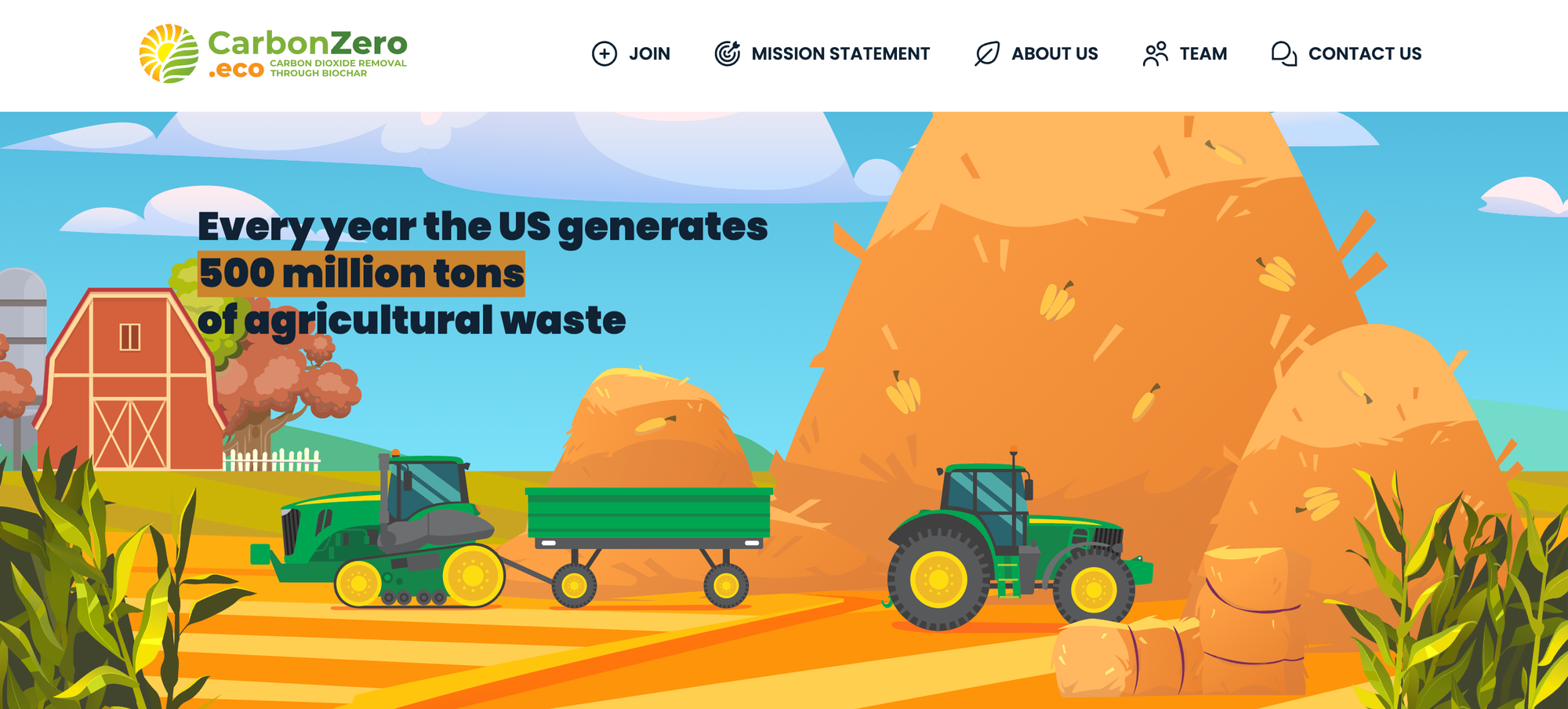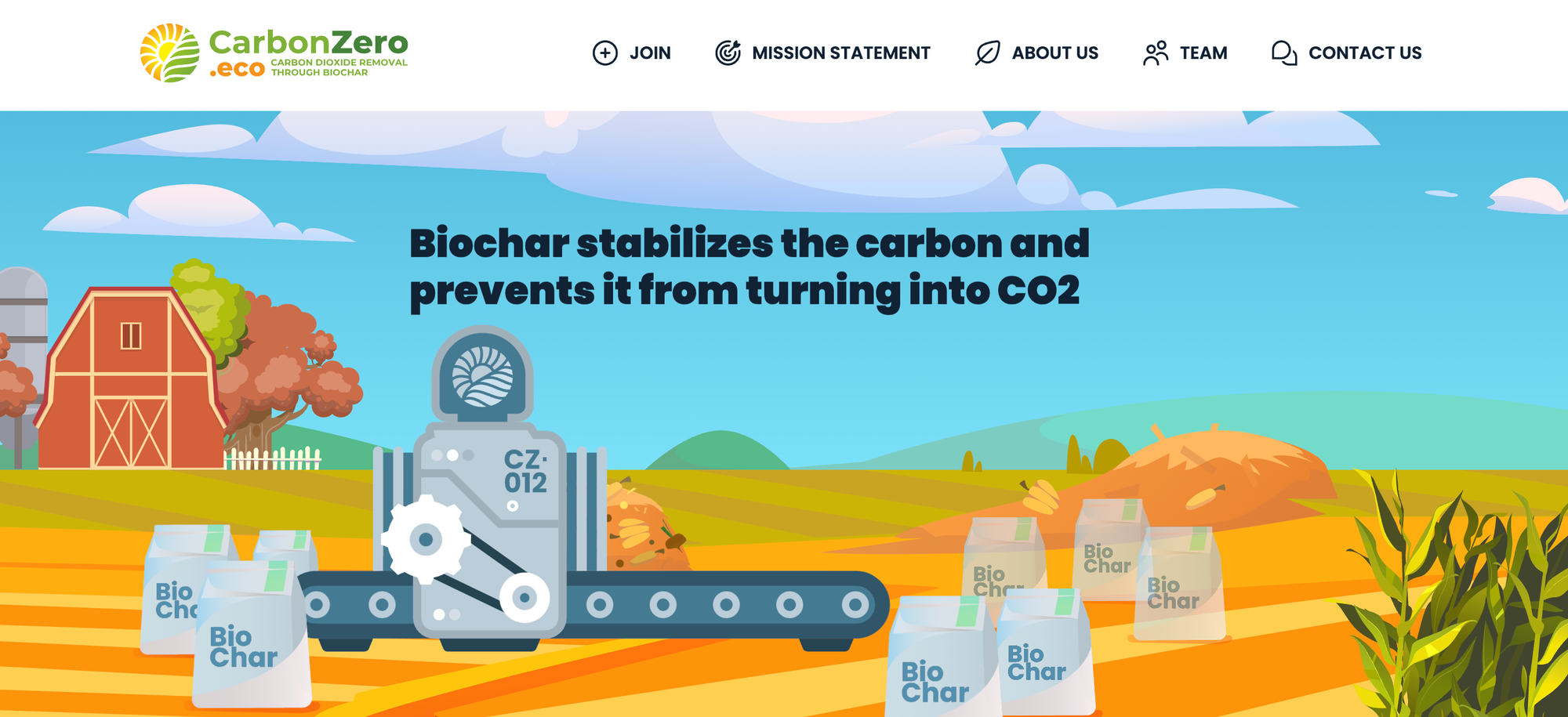CarbonZero.Eco, a Silicon Valley-based startup focused on regenerative agriculture and carbon sequestration, has officially emerged from stealth mode, securing a $3.5 million seed funding round.
Founded by 16-year-old CEO Harper Moss alongside seasoned tech entrepreneur Gregory Ray as CTO, the company aims to streamline Biochar production to support farmers while reducing carbon emissions.
A Vision for Carbon Removal and Sustainable Farming
Harper Moss conceived the idea for CarbonZero.Eco at just 15 years old, driven by a passion for environmental sustainability and agricultural innovation.
Recognizing the immense potential of Biochar—a carbon-rich material that enhances soil health and locks away CO2 for centuries—she set out to integrate this solution into mainstream farming practices.
The startup has already made significant strides, pre-selling $7 million worth of Biochar and forming partnerships with over 300 almond farms in California's Colusa and Yolo Counties.
By leveraging agricultural waste that would otherwise decompose and release carbon dioxide, CarbonZero.Eco plans to remove up to 1.5 million tons of CO2 while improving crop yields for farmers.

Major Investments and Industry Backing
CarbonZero.Eco’s mission has attracted a strong network of investors, including executives from Google, Meta, and Amazon, as well as CEOs from late-stage startups.
Angel investor Rich Miner, co-founder of Android and a former Google Ventures partner, praised Moss’s leadership and vision, emphasizing the company’s potential impact on both agriculture and carbon emissions.
Biochar’s Role in Climate Action and Agriculture
Every year, over 1.3 billion tons of agricultural waste contribute to greenhouse gas emissions through decomposition, incineration, or landfill disposal.
Biochar production offers a sustainable alternative by converting biomass into a stable form of carbon that enhances soil fertility while preventing CO2 release.
Studies show that Biochar improves soil water retention, nutrient availability, and overall crop productivity—making it an invaluable tool for farmers facing climate challenges.
CarbonZero.Eco is tackling two major barriers to widespread Biochar adoption: limited supply and accessibility for farmers.
By establishing its first production facility in Colusa County, where almond processing generates significant biomass waste, the company ensures efficient, low-carbon Biochar production with minimal transportation needs.

Scaling Production with Carbon Credit Certification
The company’s Colusa County facility, set to open in April 2025, has already been vetted by Puro.earth, a leading carbon crediting platform.
Once operational, CarbonZero.Eco will generate Biochar CO2 Removal Certificates (CORCs), providing a financial incentive for businesses looking to offset their carbon footprint.
This certification will further validate Biochar’s role as a viable climate solution while creating new revenue streams for farmers.
Dan Pronsolino, General Manager of Cortina Hulling and Shelling LLC, one of CarbonZero.Eco’s first partners, expressed confidence in the company’s model.
“Harper pitched our ownership group and convinced us that she would build a business that benefits everyone involved. We look forward to increasing crop yields, improving soil health, and generating additional revenue through this partnership.”
A New Era for Regenerative Agriculture
With over 525 million acres of U.S. farmland standing to benefit from Biochar, CarbonZero.Eco is positioning itself at the forefront of regenerative agriculture.
The company’s kilns are capable of producing 30,000 tons of Biochar annually—five times more than current technologies—helping to bridge the Biochar supply gap in the U.S.
Moss remains committed to ensuring that farmers play a central role in climate action.
“Farmers are the backbone of our country, yet they haven’t been included enough in the carbon conversation. Regenerative farming and carbon sequestration go hand in hand thanks to Biochar, and I’m honored that so many farms are trusting us to be part of this movement.”
As CarbonZero.Eco prepares to scale its operations, its mission remains clear: empower farmers, enhance soil health, and contribute to meaningful climate solutions—one Biochar kiln at a time.







